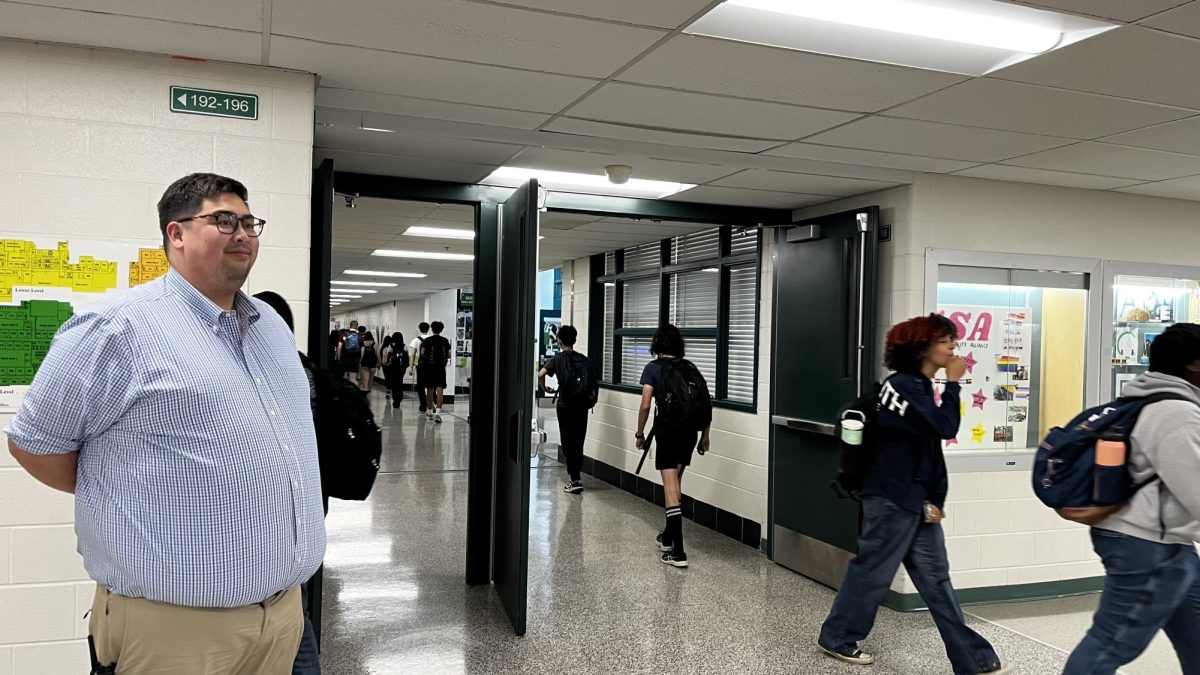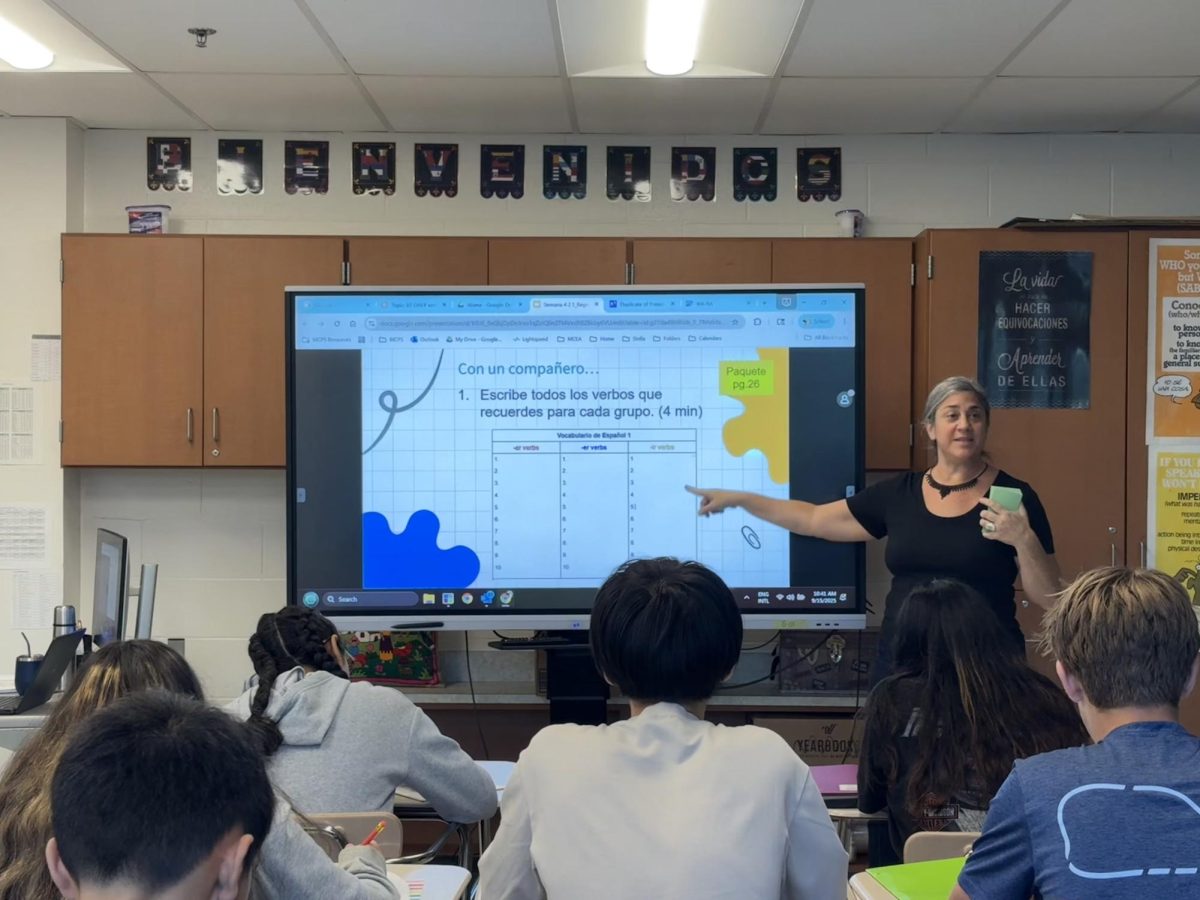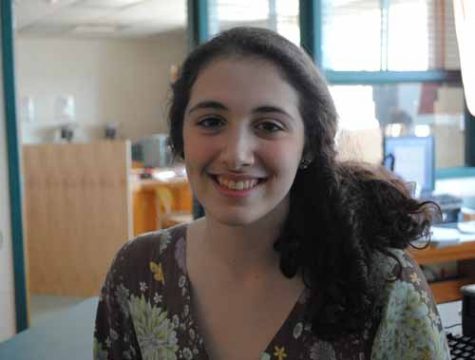Social Studies teacher Nathan Schwartz used to never think much of teaching. A Bethesda Chevy-Chase High School drop-out, it may seem ironic now that he wanted to get away from the classroom.
“I just didn’t like school very much,” said Schwartz.
In preparation for obtaining his GED, Schwartz took classes at Montgomery College for three semesters. After graduating, Schwartz bounced around from job to job. He worked on a construction site and at a movie theater. He also played the bass in a band and delivered pizzas.
“Mainly I just wanted to stay where I still lived in D.C.,” he said. “That was my lifestyle.”
Schwartz eventually left the area to attend the State University of New York in Albany, N.Y. However, after one year, he dropped out and throughout the early-1980s, became heavily involved in political activism, protesting the United States’ involvement in Latin America and the apartheid movement.
Later, Schwartz moved back to his home state and started taking classes at the University of Maryland at College Park.
“Even when I was at Maryland, I wasn’t a full-time student for a long time,” said Schwartz.
He worked at the National Archives II near the College Park campus. It wasn’t until the early-1990s when Schwartz started to get serious about learning.
“My friends joke that I was in college for 10 years, and I actually, technically was,” he said. “I took my first college class in 1985, and got a degree in 1995. There were long periods where I didn’t go to school at all.”
As he got older, Schwartz realized that teaching and working with students was the right route.
“Honestly, the rhythm of the school day works for me: it’s those 45-minute, 50-minute, hour longshots, and I work really well that way,” he said. “I don’t work that well when I have to do something for five or six hours.”
Schwartz feels extremely lucky to work in an environment rife with academic freedom.
“There are so many good teachers that if you just get out of their way, they can be very talented and successful,” he said. “I think that’s been the academic climate of this school for a long time.”
Although Schwartz likes the stability in his life now, he still dreams of where his life could have taken him.
“I guess I can imagine doing other things, but they all involved unrealistic things, like rock star or point guard in NBA – things that are probably not going to happen for me,” he said.
A colleague of Schwartz’s, social studies resource teacher Ty Healey always had teaching in the back of his mind, even back as early as when he was a high school student.
“My initial reaction to that thought was, ‘I want to do this, but it can’t be right because there must be something else out there that I don’t know yet,'” said Healey.
After college, Healey went to New York, living on his sister’s couch and taking various temporary jobs. One day, he had a revelation.
“I remember just walking home after answering phones in some office building, thinking, ‘This is crazy! This isn’t what I want to do,'” he said. “I sort of figured out that I’m not missing anything, and I do want to be a teacher.”
Healey went to George Washington University to get his teaching certificate. Now, he is happy with the way his life turned out.
“I like the students here,” said Healey. “As a department head, I like the other things I have to do, but the favorite part of my day is the three periods I teach.”
Having taught at WJ for 19 years, English teacher T.G. Finkbinder rarely thinks of his former 13-year acting career with regret. After getting “big applauses” in sixth grade for telling jokes, Finkbinder knew acting was something he would always want to pursue.
“I thought that’s just great and swell,” he said.
Finkbinder took various roles in movies, T.V. shows, plays and as a voice-over in the D.C.-area. He starred in The Redeemer: Son of Satan, a 1978 horror movie in which former classmates get trapped at their high school reunion. He was an extra in The Seduction of Joe Tynan, a 1979 drama, and F.I.S.T., a 1978 drama with leading man Sylvester Stallone.
Finkbinder did not enjoy the inconsistencies of acting.
“I worked a lot, but I would always get frustrated because as soon as I got one job, I would have to think about what the next job would be, so that was kind of drag after a while,” he said.
Finkbinder soon realized that acting was implausible with a family to raise.
“I didn’t want to go to New York or Los Angeles, and you really need to go there if you want to pursue a career,” he said. “I figured I had a family and if I wanted to bring them with me, we’d be living marginally for a few years, and I wasn’t willing to do that.”
Finkbinder is grateful that he can incorporate his vast knowledge of movies and plays into his classes.
“There is a lot a creativity in teaching,” he said. “As far as I’m concerned, you’re kind of putting on a show every time you have a class. That’s creative to me and that is fulfilling.”








